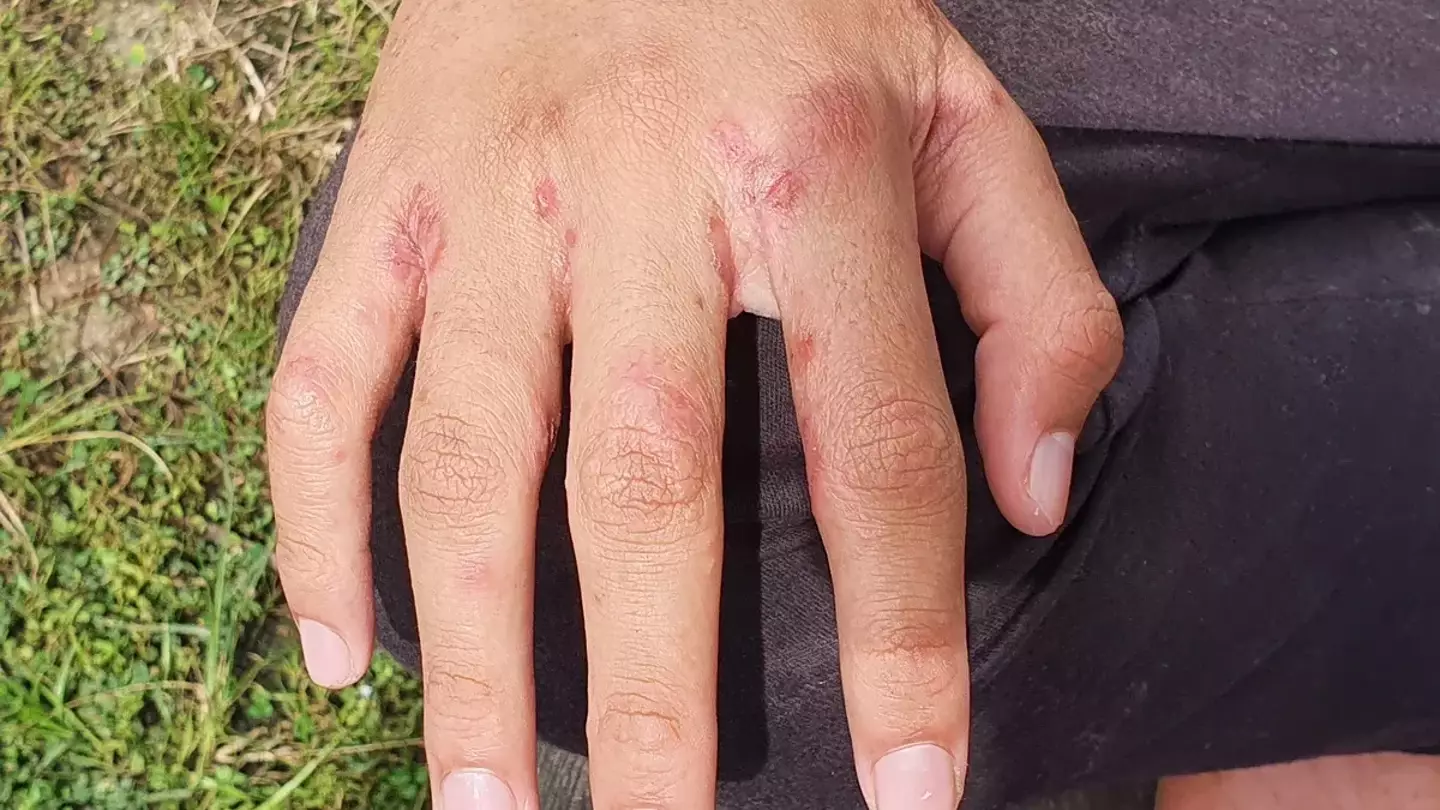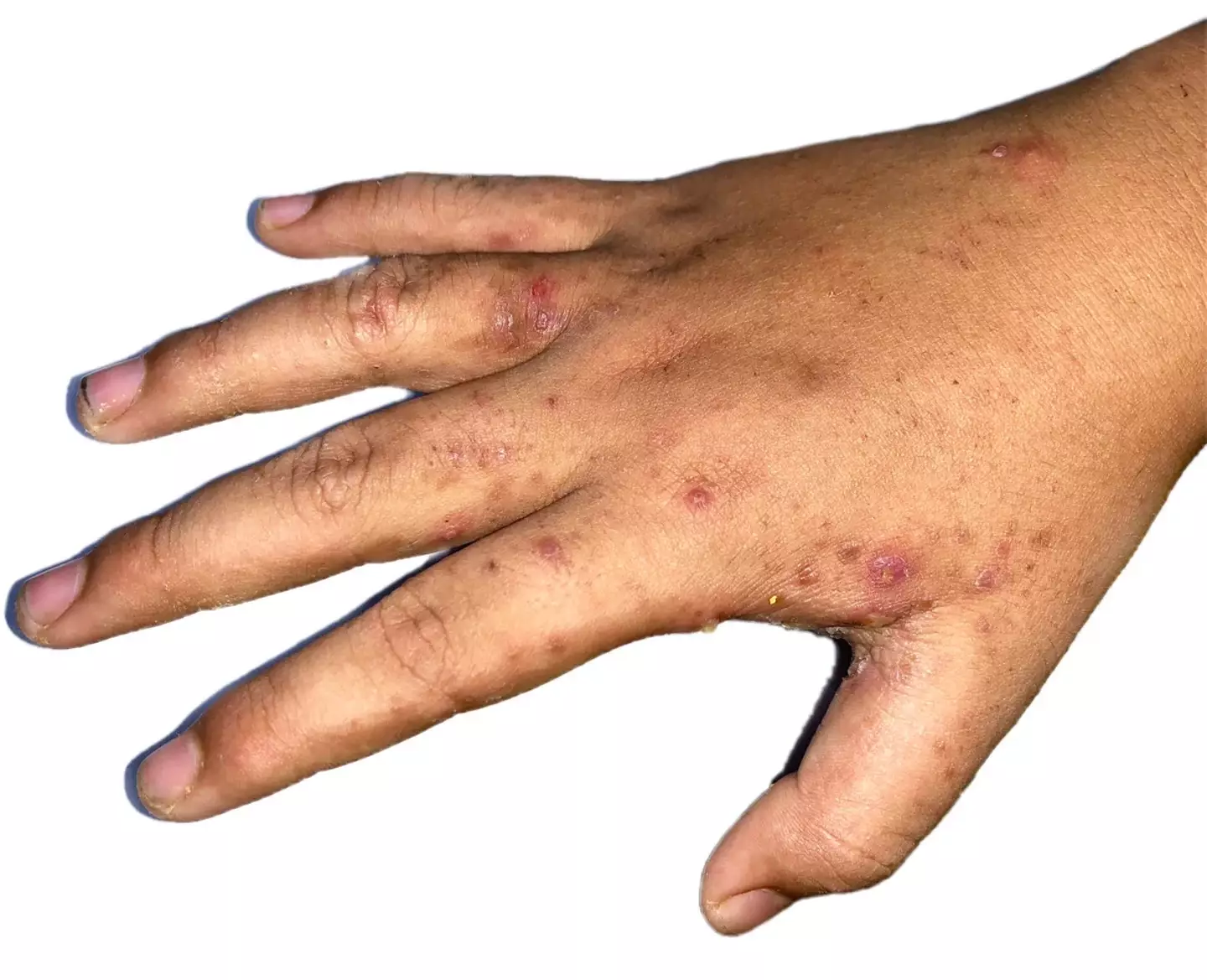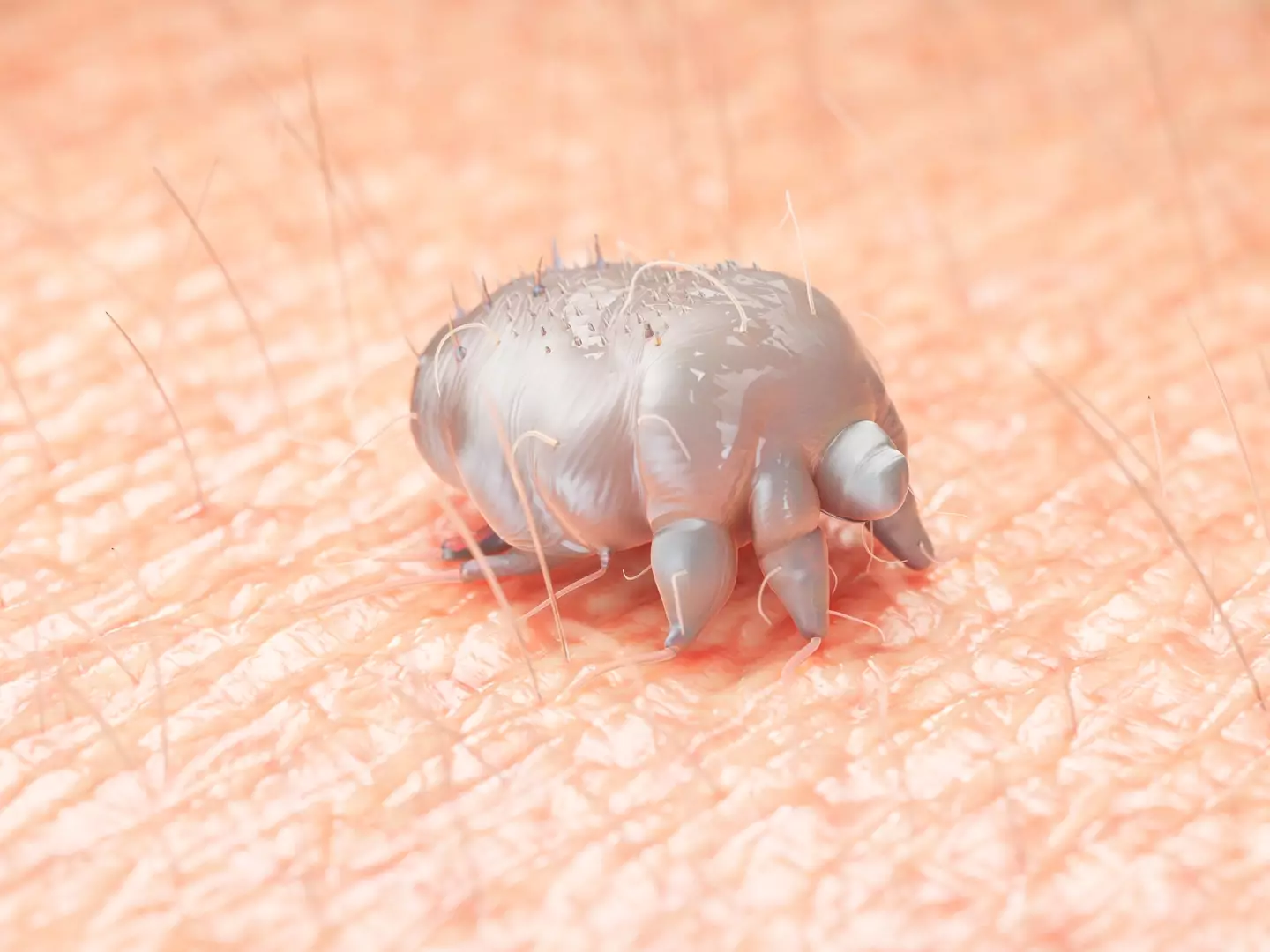
It's not a condition many of us have heard of, but there seems to be a rise in a Victorian skin disease which has found its way into the 21st century.
We might associate the illness with poor hygiene but it can impact anyone, regardless of how much they may clean themselves or their homes.
An increase in cases of the unusual illness was first reported last year, and the latest data from the Royal College of General Practitioners from last month confirms they're still above the seasonal average.
One woman shared her nine-month battle with the condition, which she first brushed off as an allergic reaction, only to find that her son was seeing the same rash and itchiness.
Advert
Amanda Rushton, from Accrington in Lancashire, told The Daily Mail she felt like her 'skin was crawling' when she found out what was wrong with her.

The 54-year-old said: "I literally recoiled when the doctor told me. I thought that was some archaic disease soldiers got, or people in camps, not normal clean people. He said it was rife lately in the UK."
What is scabies and how is it spread?
Scabies is an itchy rash caused by mites, spread through close skin contact, and should be treated quickly to stop it spreading.
It is caused by the tiny mite which burrows into the skin to live and lay eggs.
It spreads mostly through direct, prolonged skin-to-skin contact with an infested person. While this is the most common way it spreads, in some cases scabies can be passed through contaminated items like clothing, towels, and bedding, and it can spread quickly in crowded conditions like nursing homes or dorms.
And bad news as we enter the colder months, scabies are often on the rise in October and November, given that people are inside more, and students are back at university living in close quarters.
According to one doctor, the UK is seeing a surge in cases.
"We are seeing a noticeable rise in cases of scabies in Central London at the moment but also across the UK in general," Dr Tony Banerjee, a GP at HarleyDoc, based in Harley Street, told the Daily Mail.
He explained that the rash may take some time to develop, with itching often occurring between four to seven weeks after being infected.
What are the symptoms of scabies?
The NHS says the scabies rash usually spreads across the whole body, apart from the head and neck. It often affects skin between the fingers, around the wrists, under the arms, and around the waist, groin and bottom.
However, older people and young children may develop a rash on their head, neck, palms and soles of their feet.
People with a weakened immune system can sometimes get a rare and very contagious type of scabies called crusted scabies. The main symptom is a crusted, flaky rash that often affects the elbows, knees, hands and feet.
How to treat scabies

The NHS says a pharmacist can recommend a cream or lotion to treat scabies that needs to be applied even seven days.
Everyone in your household needs to be treated, regardless of if they have symptoms, as it's so infectious and can take eight weeks for a rash to develop.
It's also advised to wash all bedding and clothing in the house at 60C, and Rushton was also advised to wash her sofa covers too.
She said: "It was really stressful. It was like a laundrette. I had bags and bags of things being washed, things in 'quarantine' that couldn’t be washed, and then had to steam clean the carpets too.
"It was a nightmare. I was embarrassed and paranoid.
"My life was being ruined. I was scared to leave the house, scared to put clothes on in case they were infected, washing everything constantly."
Rushton said she finally got rid of the mites after she bought an insecticide called benzyl benzoate online, which is used to treat scabies, but not routinely offered by GPs.
Do your own robust research before deciding on a treatment plan, and speak to your GP about it.
